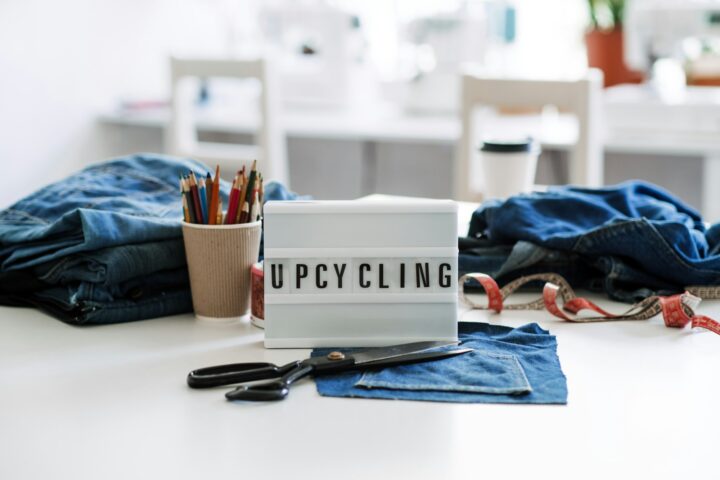The fashion industry is experiencing a long-awaited shift. Everyone is reconsidering how fashion is made, especially how it is consumed, from major luxury fashion businesses to smaller labels closer to home. The COVID-19 outbreak has radically affected our perception of the world. People buy and live differently, and think in differently in many ways. Consumers throughout the world now see through a fresh set of eyes on products and businesses.
And this is where Instagram comes in, the leading social media platform for sharing of ideas and trends didn’t brisk during the pandemic. Instagram remained a location where individuals could trade fashion trends from the comfort of their own homes.
In the promotion of a wide range of brands, social media influencers increasingly play a crucial role now. There’s a digital influencer for everything, whether it’s supporting a beauty product, a fancy handbag, or a new model SUV, and more businesses are jumping on the influencer marketing bandwagon as a way to strengthen their marketing and outreach initiatives.

SO, HOW DOES IT ACTUALLY WORK?
You’ve been there before, the first day of a new year of college in a brand-new shirt. A shirt that made you proud but was regarded by your mother as the only fit for a wanderer or sickly superstar. Regardless, you wore it, took a chance. And your mother’s disapproval and hatred vanished when you got that one head nod from a respected cool kid across the busy corridor. Confidence restored.
In this case, two persons you respected sent you a message. Your mother was the first, but she’s out of touch with Gen Z culture and would have lost that discussion.
Therefore, the cool kid’s head nod, of course, was all that counted. You would have skipped the next lecture to burn the shirt in the bathroom if it hadn’t been a nod, but rather mocking of your fashion choices. But you deserved the nod and you trusted it because your peer understood you at the time.
So, what makes the difference? The Power Of Influence.
Instagram models and influencers blazed the way during this pandemic, creating trends and raising awareness about what their followers consume, addressing every social issue that needed attention, and dismantling discriminatory societal conventions. Gen Z grabbed the globe by storm and redefined fashion; appearing nice was no longer the most crucial factor. Body positivity, gender neutrality, and acceptance of one’s own personal style transformed the fashion business; new leaders emerged, and the industry was forced to follow them in order to stay in the competition.
“Social Media Influencers, whether their audience is significant or small, impact the lives of everybody who watches their content. They do have a responsibility to ensure what they are publishing is not harmful or offensive.” This comment issued by the Bombay High Court Single Judge highlights the social media influencers’ effects and obligations.[1] The Consumer Protection Act, 2019 focuses on deceptive ads and celebrity endorsements, which also include social media influencers. Followers can sue an influencer for misleading advertising for up to INR 10 lakh if the influencer does not disclose that it is a sponsored promotion and knowingly lies about the product that it is good when it is not. Repeat offenders can be fined up to INR 50 lakh. This is the first regulation that stresses targeted advertising and market efforts through influencers, since the Ministry has often expressed concern that marketing by celebrities and influential individuals can have a detrimental impact on consumers. There have been cases where commercials have been deceptive while yet appealing to customers.
In addition to the above regulations, the Ministry of Consumer Affairs established the Central Consumer Protection Authority (Prevention of Misleading Advertisements and Necessary Due Diligence for Advertisement Endorsement) in September 2020 to monitor all types of endorsements and endorsers, regardless of medium. With the rise of the influencer industry, many micro-influencers have been pushing for personal benefit and money while ignoring the interests of the purchasing public.
With the aim of gaining consumers’ approval of fair advertising practice, the Council of Advertising Standards of India (ASCI) has established a code of self-regulation. The Code comprises a set of rules and regulations to ensure honest advertising. The ASCI also develops disclosure directives for influencers of social media who support things online, according to sources. The advertising regulator develops guidelines based on best practices around the globe to enable online shoppers to reach educated judgments in order to safeguard the consumer’s interests.
AND HOW IS THE FASHION INDUSTRY DEALING WITH IT?
We’ve seen that the role of fashion these days is all about meaningful consumption, which includes learning and appreciating how well your products are created, who manufactured them, and how ethically they were manufactured. This will have a good impact on society and shed light on how much one truly needs to consume. Virtual fashion shows and digital look books are not new concepts, but luxury firms have long attempted to provide shoppers with a more immersive experience through runways and sets but during this time of economic slumps and job losses sensitivity, sustainability, and prices are all issues that must be addressed.
Sabyasachi Mukherjee, an ace couturier in India, is famed for revealing his bridal designs on Instagram. Anjul Bhandari noted for her beautiful chikankari, and Summer House, a Bangalore-based label have shied away from runway events too. This practice was implemented by Mumbai-based Payal Khandwala even before the epidemic. A quick scan through the brand’s Instagram page provides a comprehensive look at her handcrafted silk sarees.
Running an ad campaign with social media influencers might be a fantastic way to advertise your company. However, you must adhere to the regulations. To get ready for your influencer ad campaign, do understand when you’re advertising, make certain that all disclosures are clear, Ensure that the endorsements are genuine, make a policy for social media.[2]
The world is online and if your ‘gram game is strong, you will win the world.
IS INSTAGRAM REALLY HELPING?
Over the last few decades or so, fashion and representation have joined hands and tackled crisis: including brutality by police against people of color in the United States, which increased the power of the zoot suit as a subcultural signifier, outfitting an army of women in a breeched uniform, which challenged prevailing notions of femininity; and the attack on the Parisian haute couture industry by racist mindsets, which also threatened the entire industry’s survival.
Within this multi-billion-dollar global creativity market, COVID-19 has influenced the thinking, design, production, and presentation of mode instantaneously using Instagram. It has surely helped brands survive through the pandemic by reaching out to the consumers but has also changed the definition of fashion altogether.
[1] Marico Limited v Abhijeet Bhansali (Notice of Motion No 1094 of 2019 in COMIP No. 596 of 2019)
[2] Instagram Terms of Use, Update 2020










